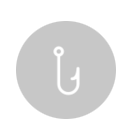
References
Ahmed, Sara. (2010). The promise of happiness. Durham, NC: Duke University Press.
Ahmed, Sara. (2014). The cultural politics of emotion, 2nd ed. Edinburgh, Scotland: Edinburgh University Press.
Alexander, Jonathan. (2005). Digital youth: Emerging literacies and the world wide web. Cresskill, NJ: Hampton Press.
Amicucci, Ann N. (2017). Rhetorical choices in Facebook discourse: Constructing voice and persona. Computers and Composition, 44, 36–51.
Arola, Kristin. (2010). The design of web 2.0: The rise of the template, the fall of design. Computers and Composition, 27, 4–14.
Balzhiser, Deborah, Grover, Mandy, Lauer, Evelyn, McNeely, Sarah, Polk, Jonathan D., & Zmikly, Jon. (2011). The Facebook papers. Kairos: A Journal of Rhetoric, Technology, and Pedagogy, 16(1). Retrieved January 11, 2018, from http://kairos.technorhetoric.net/16.1/praxis/balzhiser-et-al/index.html
boyd, danah m. (2011). Social network sites as networked publics: Affordances, dynamics, and implications. In Zizi Papacharissi (Ed.), Networked self: Identity, community, and culture on social network sites (pp. 39–58). New York, NY: Routledge.
boyd, danah m., & Ellison, Nicole B. (2008). Social network sites: Definition, history, and scholarship. Journal of Computer-Mediated Communication, 13, pp. 210–230.
Brooke, Collin Gifford. (2009). Lingua fracta: Toward a rhetoric of new media. Creskill, NJ: Hampton Press.
Buck, Elisabeth H. (2015). Assessing the efficacy of the rhetorical composing situation with FYC students as advanced media practitioners . Kairos: A Journal of Rhetoric, Technology, and Pedagogy, 19(3). Retrieved January 11, 2018, from http://kairos.technorhetoric.net/19.3/praxis/buck/index.html
Carroll, John M., Hoffman, Blaine, Han, Kyungsik, & Rosson, Mary Beth. (2015). Reviving community networks: Hyperlocality and suprathresholding in Web 2.0 designs. Pers Ubiquit Comput ,19, 477–491.
Coad, David T. (2013). Developing critical literacy and critical thinking through Facebook. Kairos: A Journal of Rhetoric, Technology, and Pedagogy, 18(1). Retrieved January 11, 2018, from http://kairos.technorhetoric.net/praxis/tiki-index.php?page=Developing_Critical_Literacy_and_Critical_Thinking_through_Facebook
Constine, Josh. (2016, April 6). Yik yak's CTO drops out as the hyped anonymous app stagnates. Tech Crunch. Retrieved January 11, 2018, from https://techcrunch.com/2016/04/06/yik-yuck/
Daer, Alice R., & Potts, Liza. (2014). Teaching and learning with social media: Tools, cultures, and best practices. Programmatic Perspectives, 6 (2), 21–40.
de Souza e Silva, Adriana, & Frith, Jordan. (2010). Locative mobile social networks: Mapping communication and location in urban spaces. Mobilities 5(4), 485–505.
Dean, Jodi. (2015). Affect and drive. In Ken Hillis, Susanna Paasonen, & Michael Petit (Eds.), Networked affect (pp. 89–102). Cambridge, MA: MIT Press.
DeLuca, Katherine. (2015). "Can we block these political thingys? I just want to get f*cking recipes." Women, rhetoric, and politics of Pinterest. Kairos: A Journal of Rhetoric, Technology, and Pedagogy, 19(3). Retrieved January 11, 2018, from http://kairos.technorhetoric.net/19.3/topoi/deluca/index.html
Dewey, Caitlin. (2014, October 7). How do you solve a problem like Yik Yak? The Washington Post. Retrieved January 12, 2018, from https://www.washingtonpost.com/news/the-intersect/wp/2014/10/07/how-do-you-solve-a-problem-like-yik-yak
Dobrin, Sidney. (2012). Ecology and a future of writing studies. In Ecology, writing theory, and new media: Writing ecology (pp. 1–23). New York, NY: Routledge.
Downs, Douglas, & Wardle, Elizabeth. (2007). Teaching about writing, righting misconceptions: (Re)Envisioning "First Year Composition" as "Introduction to Writing Studies." College Composition and Communication 58(4), 552–584.
Edbauer, Jenny. (2005). Unframing models of public distribution: From rhetorical situation to rhetorical ecologies. Rhetoric Society Quarterly, 35(4), 5–24.
English 10600 learning outcomes. Introductory Composition at Purdue. Retrieved from http://icap.rhetorike.org/outcomes
Gordon, Eric, & de Souza e Silva, Adriana. (2011). Social networks and games. In Net locality: Why location matters in a networked world (pp. 59–84). Malden, MA: Wiley-Blackwell.
Hawhee, Debra. (2015). Rhetoric's sensorium. Quarterly Journal of Speech, 101(1), 2–17.
Hayes, Tracey J. (2017). #MyNYPD: Transforming Twitter into a public place for protest. Computers and Composition, 43, 118–134.
House, Kelly. (2014, November 21). Lewis & Clark College restricts dorm access after racist posts on Yik Yak social media app. OregonLive.com. Retrieved from http://www.oregonlive.com/portland/index.ssf/2014/11/lewis_clark_college_restricts.html/
Horst, Heather A., Herr-Stephenson, Becky, & Robinson, Laura. (2010). Media ecologies. In Mitsuko Ito et al. (Eds.) Hanging out, messing around, and geeking out: Kids living and learning with new media (pp. 29–78). Cambridge, MA: MIT Press.
Jack, Jordynn. (2006). Chronotypes: Forms of time in rhetorical argument. College English, 69(1), 52–73.
Kinneavy, James L. (2002). Kairos in classical and modern rhetorical theory. In Phillip Sipiora & James S. Baumlin (Eds.), Rhetoric and kairos: Essays in history, theory, and praxis (pp. 58–76). Albany, NY: State University of New York Press.
Kolodny, Lora. (2017, April 28). Yik Yak shuts down after Square paid $1 million for its engineers. Tech Crunch. Retrieved from https://techcrunch.com/2017/04/28/yik-yak-shuts-down-after-square-paid-1-million-for-its-engineers/
Lapowsky, Issie. (2014, May 15). How Yik Yak keeps its anonymity app from ruining people’s lives. Wired. Retrieved from https://www.wired.com/2014/05/yik-yak/
Mahler, Jonathan. (2015, March 8). Who spewed that abuse? Anonymous Yik Yak app isn’t telling. The New York Times. Retrieved from http://www.nytimes.com/2015/03/09/technology/popular-yik-yak-app-confers-anonymity-and-delivers-abuse.html?_r=0
McNely, Brian. (2015). Instagram, geocaching, and the when of rhetorical literacies. Kairos: A Journal of Rhetoric, Technology, and Pedagogy, 19(3). Retrieved January 2, 2018, from http://technorhetoric.net/19.3/topoi/mcnely/
Milanes, Itica. (2014, November 21). Teen arrested in threat on Torrey Pines HS. 10News.com. Retrieved from http://www.10news.com/news/updates-coming-in-school-lockdown-investigation
National Writing Project, with DeVoss, Dànielle Nicole, Eidman-Aadahl, Elyse, & Hicks, Troy. (2010). Because digital writing matters. San Francisco, CA: John Wiley & Sons.
Orenstein, Barbara. (2015, May 15). Colleges are starting to ban Yik Yak on campus. Cosmopolitan. Retrieved from http://www.cosmopolitan.com/college/news/a40578/yik-yak-is-now-banned-from-the-college-of-idaho/
Paasonen, Susanna. (2015). A Midsummer’s bonfire: Affective intensities of online debate. In Ken Hillis, Susanna Paasonen, & Michael Petit (Eds.), Networked affect (pp. 27–42). Cambridge, MA: MIT Press.
Paasonen, Susanna, Hillis, Ken, & Petit, Michael. (2015). Introduction, Networks of transmission: Intensity, sensation, value. In Ken Hillis, Susanna Paasonen, & Michael Petit (Eds.), Networked affect (pp. 1–26). Cambridge, MA: MIT Press.
Parkinson, Hannah Jane. (2014, October 21). Yik Yak: the anonymous app taking US college campuses by storm. The Guardian. Retrieved from https://www.theguardian.com/technology/2014/oct/21/yik-yak-anonymous-app-college-campus-whisper-secret
Purdue International Students and Scholars Office. Fall 2016 Enrollment and Statistical Report [PDF]. Retrieved from http://www.iss.purdue.edu/Resources/Docs/Reports/ISS_StatisticalReportFall16.pdf
Rivers, Nathaniel A. (2016). Geocomposition in public rhetoric and writing pedagogy. College Composition and Communication, 67(4), 576–606.
Rivers, Nathaniel A. & Weber, Ryan P. (2011). Ecological, pedagogical, public rhetoric. College Composition and Communication, 63(2), 187–218.
Rosenfeld, Alex. (2014, October 2). Yik Yak sows hostility at Emory. The Emory Wheel. Retrieved from http://www.emorywheel.com/yik-yak-sows-hostility-at-emory/
Seigworth, Gregory J., & Gregg, Melissa. (2010). An inventory of shimmers. InThe affect theory reader (pp. 1–25). Durham, NC: Duke University Press.
Selfe, Cynthia L. & Selfe, Richard J. (1994). The politics of the interface: Power and its exercise in electronic contact zones. College Composition and Communication, 45 (4), 480–504.
Shamma, Tasmin. (2016, January 23). Yik Yak tests universities' defense of free speech. All Tech Considered. Retrieved from http://www.npr.org/sections/alltechconsidered/2016/01/23/463197593/yik-yak-tests-universities-defense-of-free-speech/
Swarts, Jason. (2015). Being somewhere: The meaning(s) of location in mobile rhetorical action. Enculturation: A Journal of Rhetoric, Writing, and Culture. Retrieved December 21, 2017, from http://enculturation.net/being-somewhere
Syverson, Margaret. (1994). The wealth of reality: An ecology of composition. Carbondale, IL: Southern Illinois University Press.
Tarsa, Rebecca. (2015). Upvoting the exordium: Literacy practices of the digital interface. College English, 78(1), 12–33.
Vie, Stephanie, & Walls, Douglas. (2015). Because Facebook: Digital rhetoric and social media. Kairos: A Journal of Rhetoric, Technology, and Pedagogy, 19(3). Retrieved December 21, 2017, from http://kairos.technorhetoric.net/19.3/loggingon/index.html
Wolff, William I. (2015). Baby, we were born to tweet: Springsteen fans, the writing practices of in situ tweeting, and the research possibilities for Twitter. Kairos: A Journal of Rhetoric, Technology, and Pedagogy, 19(3). Retrieved December 31, 2017, from http://kairos.technorhetoric.net/19.3/topoi/wolff/index.html
Wysocki, Anne Frances, & Jasken, Julia I. (2004). What should be an unforgettable face. Computers and Composition 21, 29–48.








